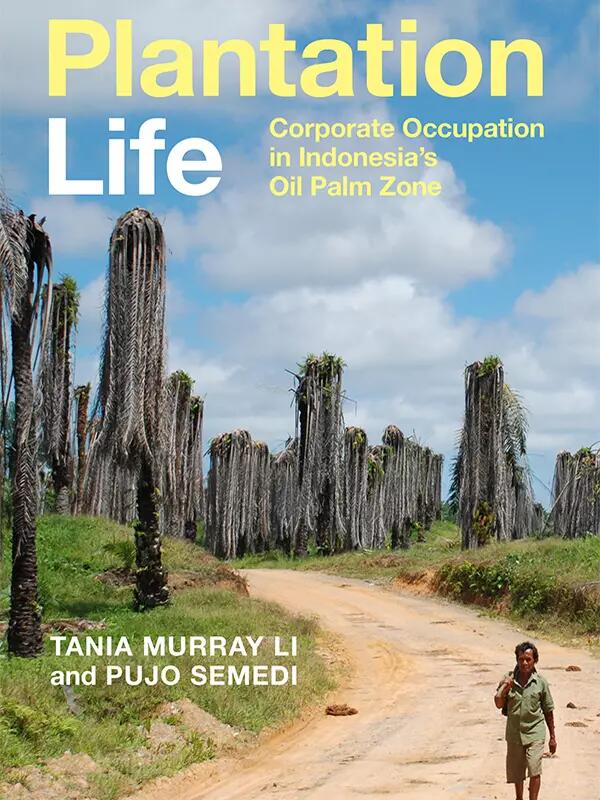
Plantation Life: Corporate Occupation in Indonesia’s Oil Palm Zone
In Plantation Life Tania Murray Li and Pujo Semedi examine the structure and governance of Indonesia’s contemporary oil palm plantations in Indonesia, which supply 50 percent of the world’s palm oil. They attend to the exploitative nature of plantation life, wherein villagers’ well-being is sacrificed in the name of economic development. While plantations are often plagued by ruined ecologies, injury among workers, and a devastating loss of livelihoods for former landholders, small-scale independent farmers produce palm oil more efficiently and with far less damage to life and land. Li and Semedi theorize “corporate occupation” to underscore how massive forms of capitalist production and control over the palm oil industry replicate colonial-style relations that undermine citizenship. In so doing, they question the assumption that corporations are necessary for rural development, contending that the dominance of plantations stems from a political system that privileges corporations.
“Plantation Life is an eye-opening book on many fronts. It offers up an ethnographically and historically rich account of forms of life in Indonesia’s corporate plantation zone and has much to give about method, collaboration, and evidence. Tania Murray Li and Pujo Semedi show how the plantation is a presence both fickle and contradictory, at once an occupying force and a source of neglect: occupation and abandonment, order and disorder, theft and calculability, alignment and fracture all coexist in a rough-and-tumble assemblage in which political economy and technologies of power are simultaneously in play. An important book.” — Michael Watts, Class of ’63 Professor, University of California, Berkeley
“Palm oil is one of the most ubiquitous ingredients in consumer products in industrialized countries and the principal driver of landscape transformation in the Indo-Malay tropics. This, the first ethnography of oil palm plantations, convincingly demonstrates that they neither achieve their purported goal of modernizing the rural peasantry nor—remarkably—make money for the corporations involved, a paradox and perversity of modern capitalism. This is a must-read for everyone interested in tropical peoples and environments and the impact on them of consumerism in the global North.” — Michael R. Dove, author of Bitter Shade: The Ecological Challenge of Human Consciousness